I am copying this very handy reference to my blog for use with my WWW2 Germans. Published at the Warlord Games website here
PAINTING OSTFRONT GERMANS BY ANDY SINGLETON
Friend of Warlord and grand master of the Volley Fire Painting Services paint mines, Andy Singleton has written a fantastic guide for new German players – a guide on how to paint three of the key uniforms worn by German troops on the Eastern Front.
Handily, Andy has included the specific paints used – and their equivalents from the Vallejo and Citadel paint ranges – as well as some pictures of his own collection of German equipment for reference!
One of the most potentially daunting and baffling forces to paint for WW2 gaming is the Germans. Due to the way the German military was formed, each branch was, in essence, competing against the other for resources and to get the best equipment, which led to a bewildering array of uniforms becoming present in a very short period of time! To help bring some clarity for those unfamiliar with German uniforms I’m going to explain the styles and who wore what.
FIELD GREY
This colour sounds simple, but even the name is misleading as Field Grey is actually green…! Throughout the war the colour changed quite considerably and had very little consistency, especially after around 1942, but even prior to that the colour could vary massively. To illustrate this I’ve included a pic of two of my reproduction caps. The bottom hat was brand new when I took the photo, and the other I’ve had for ages and has faded, been rained on (lots) and generally had lots of dirt and dust build up in it – so you don’t need to sweat getting the colour right too much. I prefer Russian Uniform as a base colour, with army painter Strong tone for shading, and Green Grey for highlights, with increasing amounts of white mixed in to create starker contrasts. If you only have access to Games Workshop paints then I’d suggest using Straken Green or Nurgling Green for the base colour, giving the model a wash of Agrax Earthshade, and then layering on highlights using increasing amounts of white paint mixed into the base colour.
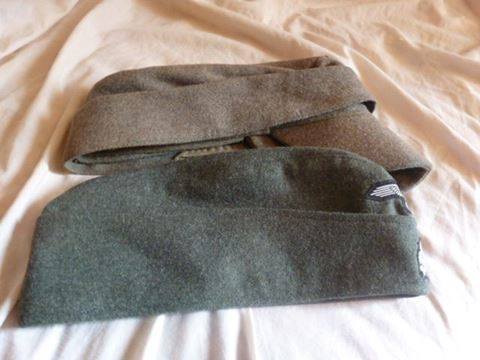
Field Grey uniforms were worn by all Heer and Waffen-SS forces, as well as by the Fallschirmjäger as trousers, though the Waffen SS and Fallschirmjager also usually wore them in conjunction with camouflage smocks, which I’ll come to later.
SPLINTER PATTERN CAMOUFLAGE.
This is the camouflage used by the army (Heer) and Airforce (Fallschirmjäger and Luftwaffe Field Divisions). Splinter Pattern Camouflage is used for Army infantry wearing hooded parka jackets, smocks, and the triangular Zeltbahn Poncho, which can be seen in the new Veteran Grenadiers set. Although regularly used as a poncho by soldiers its original guise is as a quarter of a tent as can be seen below. Splinter pattern would also be worn on trousers, however these were purchased privately by the soldiers and were quite rare to see. Winter over-trousers were also made, but these tended to only be worn in the winter as they are heavy and hot. As you can see below there is a slight difference in patterns and colour, as with the field grey:
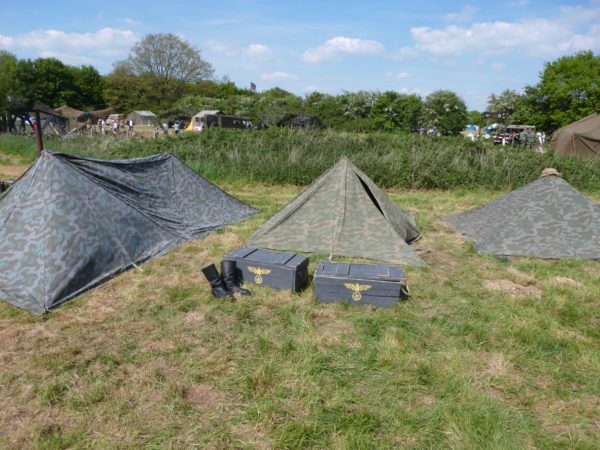
To paint Splinter Pattern, I use Vallejo Khaki as the base colour, then shade this with Army Painter Strongtone, then highlight the smock using increasing amounts of white, before finishing the camouflage pattern with reflective Green and Flat Earth disruptive patterns. If I were to use Games Workshop colours I would use Ushabti Bone, Loren Forest for the green and Skrag Brown for the brown.
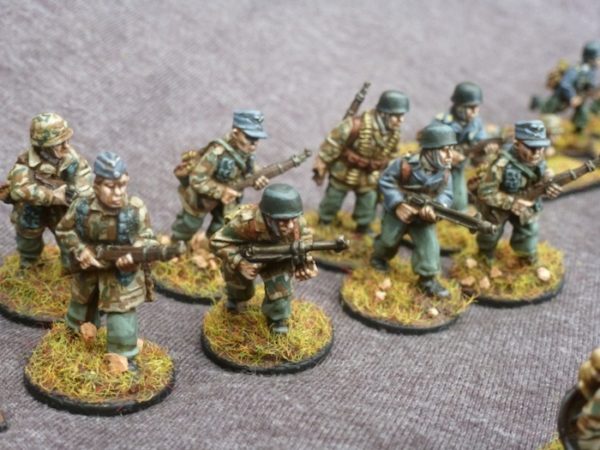
WAFFEN-SS CAMOUFLAGE.
Waffen-SS camouflage is a very extensive subject, so I shall concentrate on one of the most common patterns seen on the Eastern Front:
Oakleaf Camouflage. This was the most common camouflage pattern, and came in the form of smocks, parkas and helmet covers. These were all reversible, the smocks and helmet covers had autumn browns on one side, and summer greens on the reverse. A little further down the page you’ll find a picture of my parka which shows the autumn brown side. Parkas could be reversed to white for wearing in the snow, however this side tended to absorb far more water than the camouflage side and attract lots of dirt, so wearing the camouflage side even in the snow wasn’t uncommon!
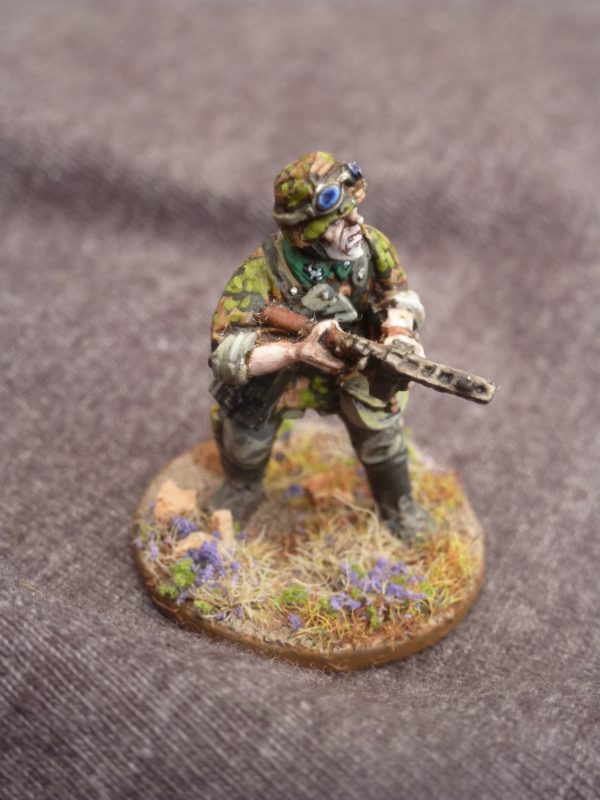 To paint the pattern I use Vallejo Brown Sand as a base colour, shade and highlight this as with the other items of clothing, and then apply the camouflage using large dots to small dots. For summer camouflage I start off with Vallejo Extra Dark Green, then on top of this apply dots of reflective green, and finally finish the pattern off with tiny dots of Golden Olive. With Games Workshop Paints I would use Balor Brown for the base, then Loren Forest, Straken Green, and Moot Green for the decreasingly sized dots.
To paint the pattern I use Vallejo Brown Sand as a base colour, shade and highlight this as with the other items of clothing, and then apply the camouflage using large dots to small dots. For summer camouflage I start off with Vallejo Extra Dark Green, then on top of this apply dots of reflective green, and finally finish the pattern off with tiny dots of Golden Olive. With Games Workshop Paints I would use Balor Brown for the base, then Loren Forest, Straken Green, and Moot Green for the decreasingly sized dots.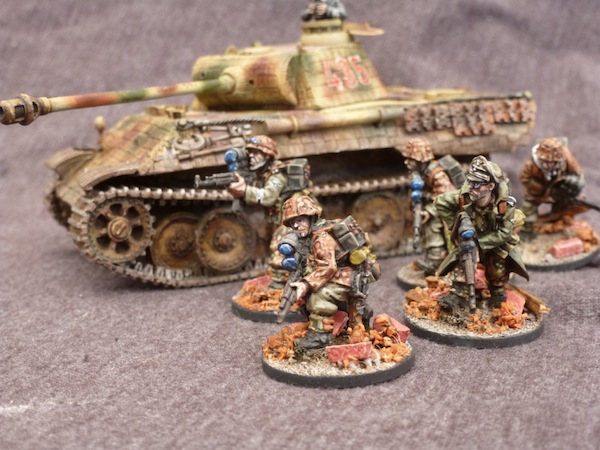
For the autumn side I use the same technique, but start with Brown Sand, then dots of Hull Red, Flat Earth and Orange Leather. In Games Workhop colours I’d use Balor Brown as the base again, then Doombull Brown, Skrag Brown and finally Tau Light Ochre.
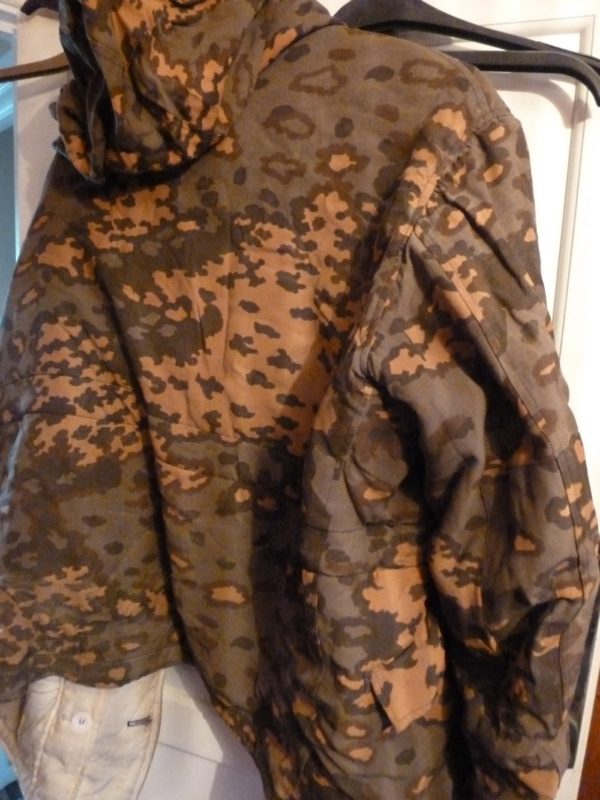
EQUIPMENT
German straps and boots were black leather and the field gear varied greatly in colour again. I tend to use either Vallejo Middlestone or Reflective Green with some Army painter Strong Tone over the top, although there’s a lot of choice here, and you can pretty much use a fairly huge range of colours depending when and where your figures are themed for.
I’d also really recommend digging further through the Warlord range – there are loads of possibilities for conversions and kit-bashing to create unique units to add character to your army. On the Eastern Front, there was a lot of kit-sharing and looting of enemy gear – I have, for example, had great fun combining the Soviet Winter Infantry sprues with German weapons to create some distinct squads…
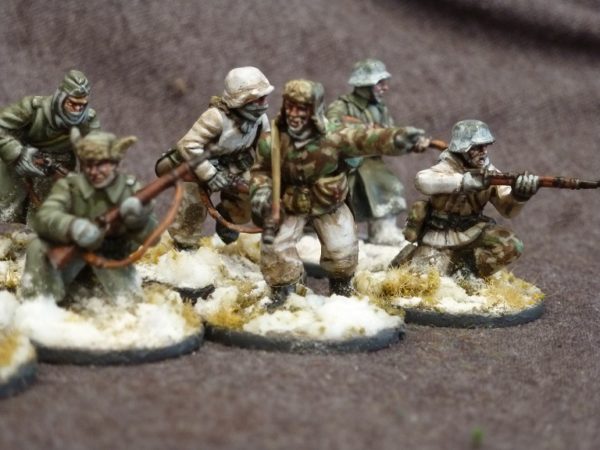
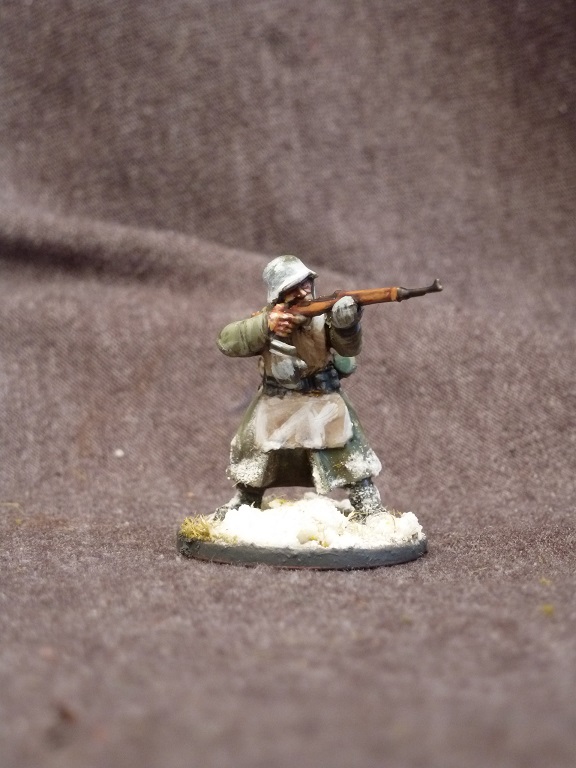
COLOURS USED
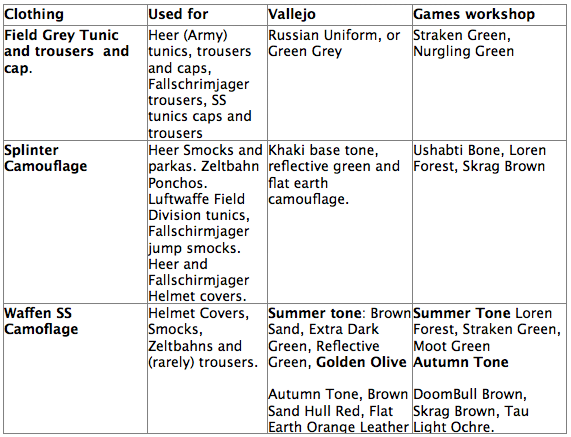
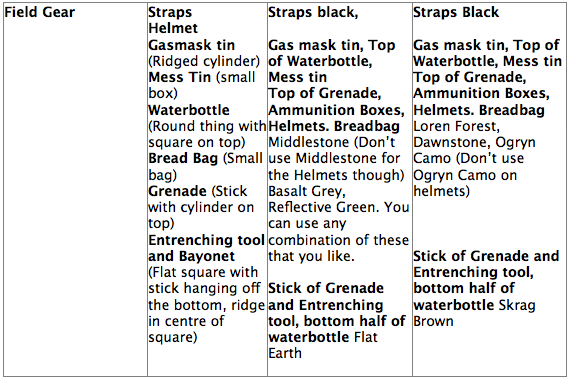
Separately, I found this nifty WSS YouTube video of how to paint Oak Leaf Camo
And a few others for Pea Dot Camo

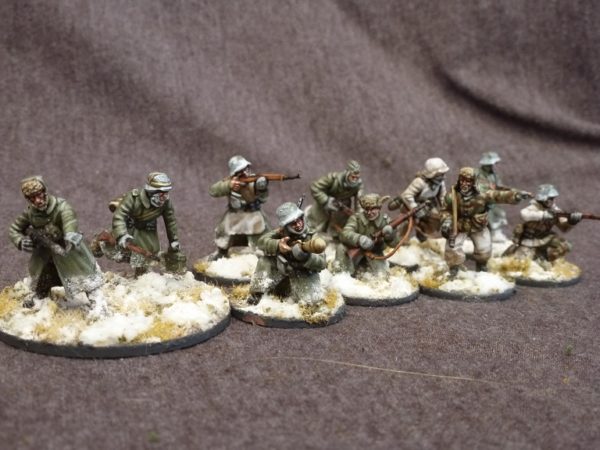
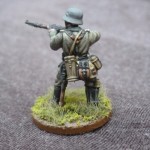
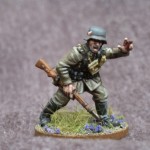
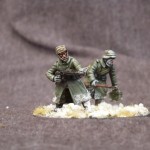
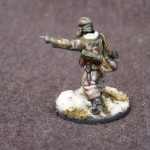
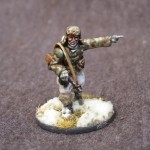
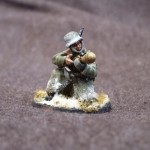
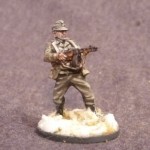
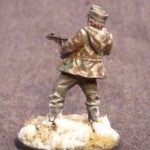
I'm not or don't really plan to paint any Germans, but this is still excellent info. If only we had this kind of stuff for all our periods, imagine how easy life would be??
ReplyDeleteThese look awesome great painting ! Historicalgamingguide.blogspot.com
ReplyDelete